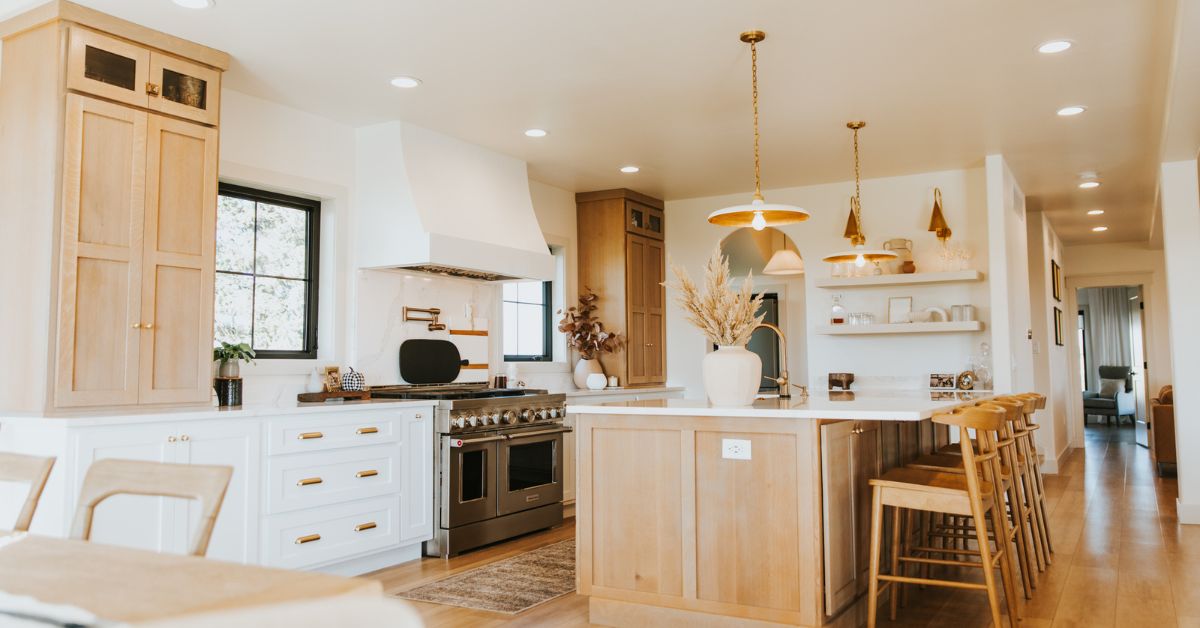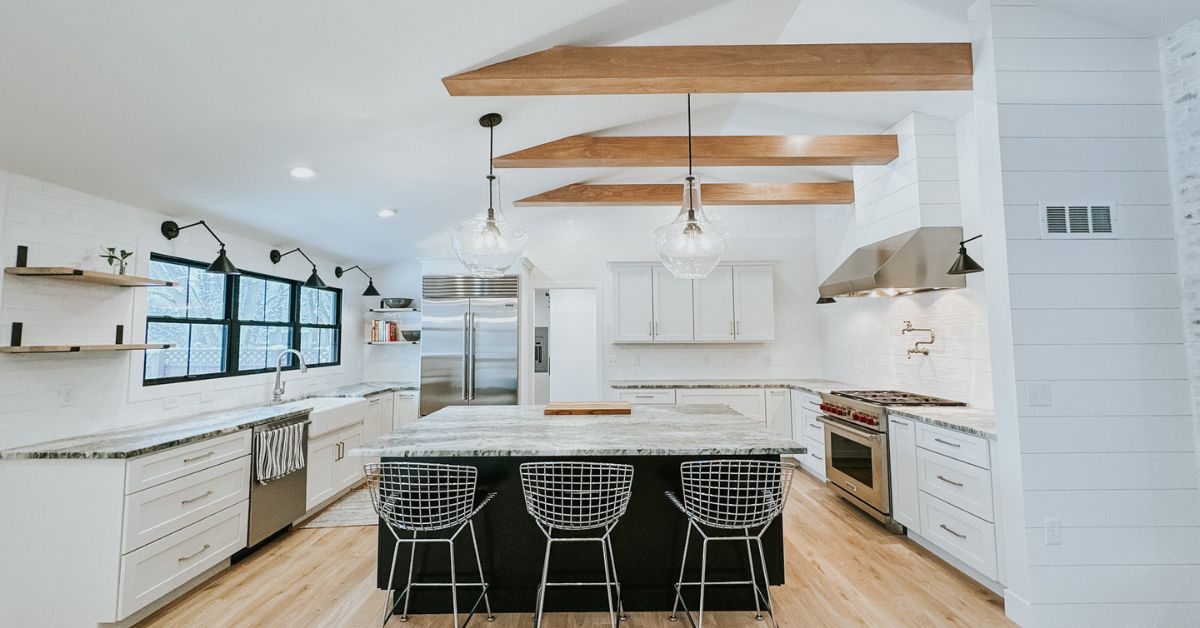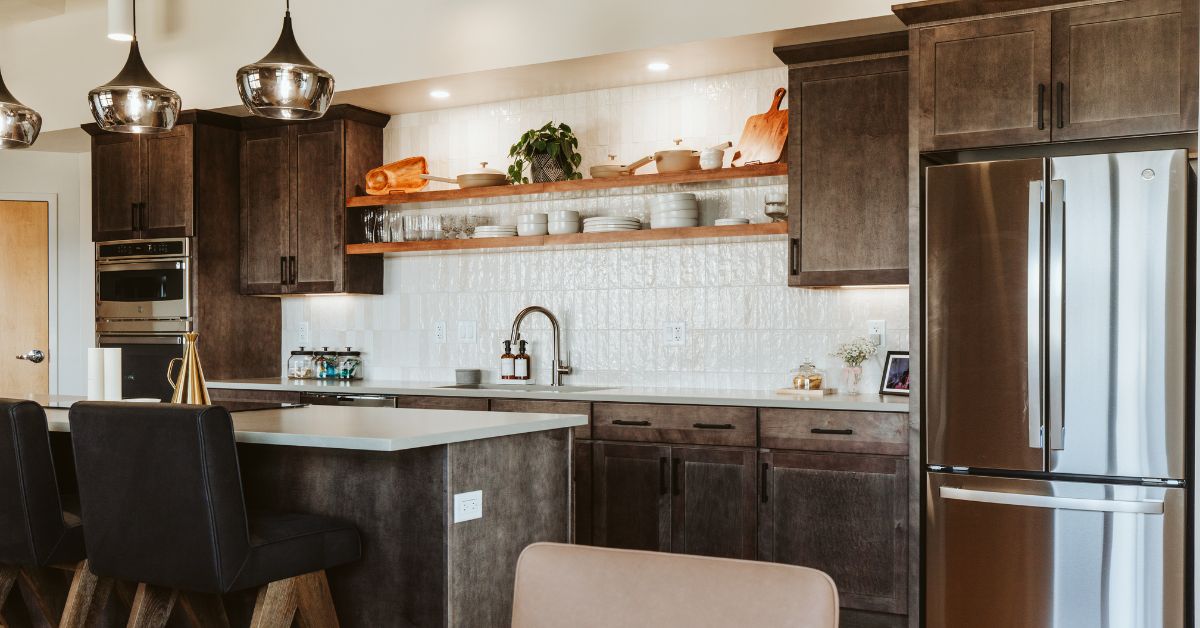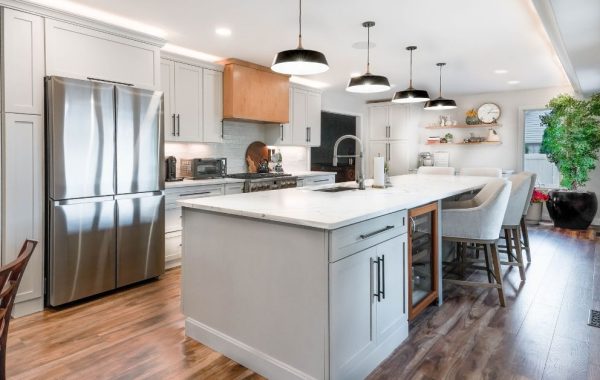
Published in:
Most Common Home Renovation Mistakes To Avoid
Home renovation projects can be exciting opportunities to create the space of your dreams, but they also come with numerous challenges. From budget constraints to design oversights, the margin for error can be unexpectedly large. Knowing the potential problems you could run into can save time and money, whether a small kitchen remodel or a complete home overhaul.
Many homeowners eagerly jump into renovations without the proper preparation, leading to costly errors and disappointing results. Understanding and avoiding the most common home renovation mistakes can ensure a smoother process and achieve your envisioned home.
Hiring professionals is often one of the most critical decisions you can make to prevent missteps and help you make informed decisions. This guide will provide practical tips to help steer your project in the right direction.


Not Setting a Realistic Budget
Failing to set a realistic budget is one of the most common, yet critical, mistakes homeowners make when planning a renovation. The excitement of envisioning a new space can often lead to underestimating costs or forgetting essential expenses, such as permits, labor fees, material upgrades, or unexpected contingencies. Many overlook the importance of detailed planning and thorough research, essential for understanding the full scope of costs involved. Assess your priorities, gather accurate cost estimates, and seek professional advice to ensure your vision aligns with your financial capabilities.Skipping the Planning Phase
Proper planning is essential to ensure your project stays on track and aligned with your goals. A solid plan should include a detailed timeline, a clear outline of your priorities, and a comprehensive list of necessary materials and tasks. Neglecting this step often results in unexpected delays, costly mistakes, and even structural issues. Engaging professionals, such as architects and contractors, at the planning stage can provide critical insight and help uncover potential challenges before they arise.
Ignoring Building Codes and Permits
Many homeowners enthusiastically begin their projects, excited to see their vision come to life, only to discover halfway through that their work violates local regulations. This oversight can result in financial penalties, significant project delays, legal complications, or even being forced to dismantle and redo completed work to meet standards. Building codes ensure safety, structural integrity, and compliance with local guidelines, while permits are a formal approval process to verify that your renovations have proper planning. To avoid these setbacks, conduct thorough research and consult with local authorities or professionals to fully understand the building codes and permits required for your project.DIY-ing Beyond Your Skill Level
While taking on do-it-yourself projects can be a rewarding way to save money and personalize your home, you must recognize the limitations of your skills and experience. Tackling tasks beyond your expertise, such as electrical wiring, plumbing, or structural modifications, can lead to costly errors, poor results, or even serious safety risks. Without proper knowledge and training, you risk damaging your home, violating building codes, or creating hazards that endanger your household. By understanding your capabilities and knowing when to bring in an expert, you can avoid unnecessary setbacks and protect the value and safety of your home.Choosing the Cheapest Option
While it might seem appealing to save money by selecting the cheapest materials or contractors, this approach can lead to significant issues in the long run. Low-cost materials often have inferior quality, so they may not withstand wear and tear, forcing you to spend more on frequent replacements or repairs. Hiring inexperienced or low-cost contractors can result in inferior workmanship, increasing the likelihood of errors or structural problems that may compromise the safety and value of your home. Focus on balancing quality and cost by researching reliable professionals and selecting durable materials that provide better longevity and value for your investment.Failing to Consider Resale Value
When renovating a home, you might be tempted to focus on creating a space tailored to your preferences without considering how it might appeal to future buyers. However, making overly specialized or niche design choices can significantly reduce your home’s attractiveness on the market, potentially lowering its resale value. Balance personalization with practicality to maximize your return on investment. Choose upgrades and updates that are timeless, versatile, and widely appealing, such as modernized kitchens and bathrooms, neutral color palettes, or added energy-efficient features.



